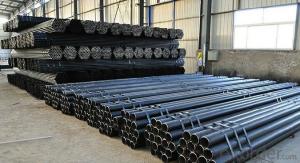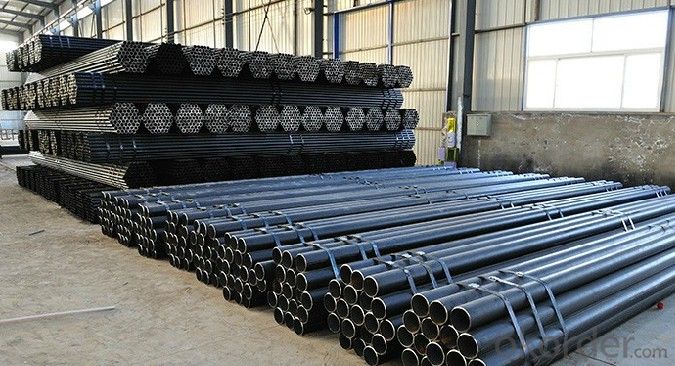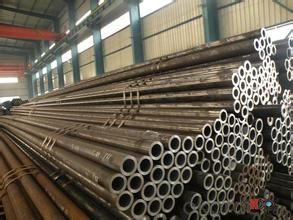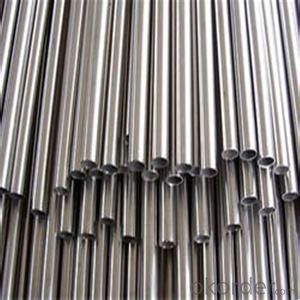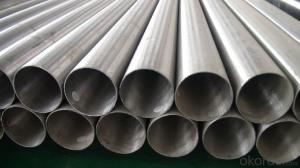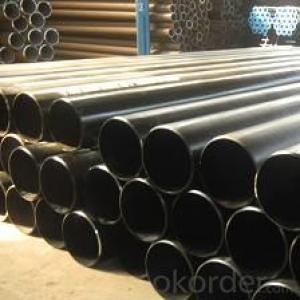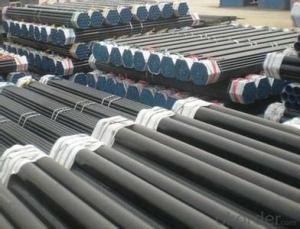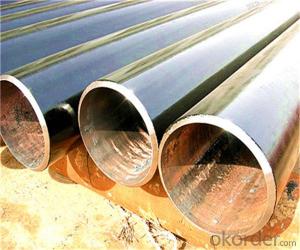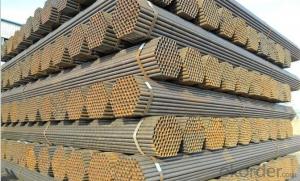Seamless Steel Pipe 2-1/2"
- Loading Port:
- China Main Port
- Payment Terms:
- TT or LC
- Min Order Qty:
- 25-35 m.t.
- Supply Capability:
- -
OKorder Service Pledge
OKorder Financial Service
You Might Also Like
Quick Details
| Thickness: | 4 - 70 mm | Section Shape: | Round | Outer Diameter: | 25 - 377 mm |
| Place of Origin: | Shandong China (Mainland) | Secondary Or Not: | Non-secondary | Application: | Fluid Pipe |
| Technique: | Hot Rolled | Certification: | API | Surface Treatment: | according the customers requirment |
| Special Pipe: | API Pipe | Alloy Or Not: | Non-alloy | Length: | 4-12 m |
| Grade: | 10#,20#,45#,12Cr1MoV,16Mn,A53(A,B),A106(B,C),A333,A192,API J55,API P110,St52,St42,St45-4,10#-45#,Cr-Mo alloy,A53-A369,API J55-API P110,ST35-ST52 | Standard: | GB 5310-1995,GB 3087-1999,GB/T8163,DIN 1629/3,DIN 1629/4,ASTM A106-2006,ASTM A213-2001,API 5CT,GB,DIN,ASTM,API |
Packaging & Delivery
| Packaging Detail: | Packing, Delivery ect.according to customers requirements |
| Delivery Detail: | within 30 work days |
Specifications
1.hot rolling round seamless steel pipe
2. OD-4--70mm. WT:25-377MM
3. certification:API,BV,SGS
4. engaged in 20 years.
Specifications
Carbon Steel Pipes API 5L Gr. X42 / X46 / X52 / X56 / X 60 / X65 PSL1 PSL2
P235GH EN-10216 P235GH+N EN-10216 Seamless Tubes
Seamless Steel Pipe Image
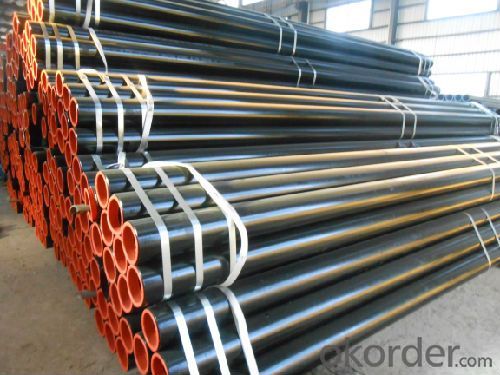
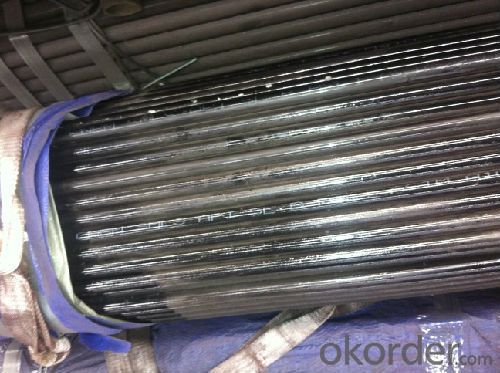
FAQ of Seamless Steel Pipe
①How is the quality of your products?
Our products are manufactured strictly according to national and internaional standard, and we take a test
on every pipe before delivered out. If you want see our quality certifications and all kinds of testing report, please just ask us for it.
Guaranteed: If products’ quality don’t accord to discription as we give or the promise before you place order, we promise 100% refund.
②How about price?
Yes, we are factory and be able to give you lowest price below market one, and we have a policy that “ for saving time and absolutely honest business attitude, we quote as lowest as possible for any customer, and discount can be given according to quantity”,if you like bargain and factory price is not low enough as you think, just don’t waste your time.Please trust the quotation we would give you, it is professional one.
③Why should you chose us?
Chose happens because of quality, then price, We can give you both.Additionally, we can also offer professional products inquiry, products knowledge train(for agents), smooth goods delivery, exellent customer solution proposals.Our service formula: good quality+good price+good service=customer’s trust
SGS test is available, customer inspection before shipping is welcome, third party inspection is no problem.
Any question, pls feel free to contact us !
- Q: What are the different methods of coating steel pipes?
- There are several different methods of coating steel pipes, including fusion bonded epoxy (FBE) coating, liquid epoxy coating, polyurethane coating, and three-layer polyethylene (3LPE) coating.
- Q: What are the different grades of steel used for pipes?
- The different grades of steel used for pipes include carbon steel, alloy steel, and stainless steel.
- Q: How are steel pipes used in the manufacturing of bridges?
- Steel pipes are commonly used in the manufacturing of bridges for various purposes, such as supporting heavy loads, providing structural strength, and ensuring durability. They are often used as piling foundations, allowing the bridge to be securely anchored to the ground. Steel pipes can also be used as bridge components, such as support columns, beams, and trusses, providing the necessary strength and stability to withstand the weight and forces exerted on the bridge. Additionally, steel pipes are used for drainage systems, allowing water to flow away from the bridge structure, preventing potential damage or erosion. Overall, steel pipes play a crucial role in the construction and structural integrity of bridges.
- Q: How are steel pipes tested for pressure and leakage?
- Steel pipes are tested for pressure and leakage using a variety of methods to ensure their safety and reliability. One common method is hydrostatic testing, where the pipe is filled with water and subjected to a specific pressure for a specified duration. This test helps identify any weaknesses or leaks in the pipe by observing if there is any pressure drop or visible water leakage. The pressure is carefully measured and monitored during the test, and if the pipe successfully withstands the required pressure without any signs of leakage, it is considered to have passed the test. In addition to hydrostatic testing, other non-destructive testing methods may also be employed. These methods include ultrasonic testing, which uses high-frequency sound waves to detect any flaws or defects in the pipe material, and magnetic particle testing, which involves applying a magnetic field to the pipe and inspecting it for any magnetic particles that may indicate cracks or imperfections. Moreover, visual inspection is an essential step in testing steel pipes for pressure and leakage. Trained inspectors examine the exterior and interior surfaces of the pipe to check for any visible signs of damage, such as corrosion, cracks, or faulty welds. This visual inspection helps to identify potential weak points that could lead to leaks or failures under pressure. Overall, a combination of hydrostatic testing, non-destructive testing methods, and visual inspection is used to comprehensively evaluate steel pipes for pressure and leakage. These rigorous testing procedures ensure that the pipes meet the required standards and are safe for their intended applications.
- Q: What's the use of steel pipe?
- No other type of steel can replace the steel tube entirely, but the steel tube can take the place of some sections and bars. Steel pipe is very important to the development of national economy and the improvement of human life quality, much better than other steel products. From the people's daily utensils, furniture, water supply and drainage, gas supply, ventilation and heating facilities to all kinds of agricultural machinery equipment manufacturing, underground resources development, national defense and space use guns, bullets, missiles, rockets and so cannot do without steel.
- Q: How are steel pipes tested for quality and strength?
- Steel pipes are tested for quality and strength through various methods, including destructive and non-destructive testing. Destructive tests involve subjecting samples to extreme conditions such as tension, compression, or bending to assess their mechanical properties. Non-destructive tests, on the other hand, utilize techniques like ultrasonic inspection, magnetic particle testing, and radiographic examination to detect any defects or anomalies without damaging the pipes. These rigorous testing procedures ensure that steel pipes meet the required standards and can withstand the intended applications.
- Q: What is the difference between steel pipe and concrete pipe?
- The main difference between steel pipe and concrete pipe lies in their material composition. Steel pipes are made from steel, which provides strength, durability, and resistance to corrosion. On the other hand, concrete pipes are made from a mixture of cement, aggregates, and reinforcing materials, offering advantages such as fire resistance and the ability to withstand high pressure. While steel pipes are commonly used for transporting fluids and gases, concrete pipes are often used in drainage and sewage systems.
- Q: What are the different types of steel pipe supports for seismic applications?
- There are several types of steel pipe supports used for seismic applications, including rigid supports, sway braces, and spring hangers. Rigid supports provide fixed support to the piping system, while sway braces are designed to absorb and redirect seismic energy. Spring hangers, on the other hand, are used to isolate and dampen vibrations caused by seismic activity. These different types of supports are selected based on the specific requirements and characteristics of the piping system and the seismic zone in which it is located.
- Q: What is the impact resistance of steel pipes?
- Steel pipes have a high level of impact resistance thanks to the natural properties of steel. Steel, known for its strength and durability, can endure substantial external forces and impacts without deforming or breaking. The impact resistance of steel pipes is further improved by their construction and design. Various manufacturing techniques, such as seamless or welded construction, are used to create steel pipes, ensuring uniformity and strength throughout the structure. This construction process eliminates weak points or seams that could compromise the pipe's impact resistance. Additionally, steel pipes can be customized to meet specific impact resistance requirements based on their intended use. Different grades and types of steel can be utilized to achieve varying levels of impact resistance, allowing for customization to suit different industries and environments. The excellent impact resistance of steel pipes is particularly advantageous in industries such as construction, oil and gas, and transportation. These industries subject pipes to heavy loads, pressure, and potential impacts. Steel pipes can withstand these harsh conditions, making them a dependable choice for a wide range of applications. To summarize, steel pipes have outstanding impact resistance due to the inherent strength and durability of steel, as well as the construction techniques employed during manufacturing. Steel pipes can withstand significant external forces and impacts, making them a reliable and sturdy option for various industries and applications.
- Q: How are steel pipes used in the construction of sewer systems?
- Steel pipes are commonly used in the construction of sewer systems due to their durability and strength. These pipes are used to transport sewage and wastewater from households and businesses to treatment plants or disposal sites. They are resistant to corrosion and can withstand high pressure, making them ideal for underground installations. Additionally, steel pipes can be manufactured in various sizes and lengths, allowing for efficient and cost-effective installation in sewer infrastructure.
Send your message to us
Seamless Steel Pipe 2-1/2"
- Loading Port:
- China Main Port
- Payment Terms:
- TT or LC
- Min Order Qty:
- 25-35 m.t.
- Supply Capability:
- -
OKorder Service Pledge
OKorder Financial Service
Similar products
Hot products
Hot Searches
Related keywords
